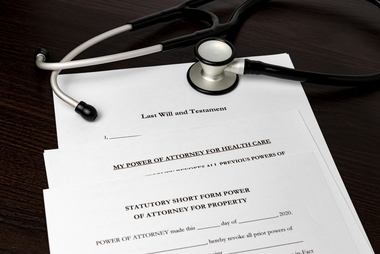If you’re named the Personal Presentative (PR) in a will, you will be the one administering the deceased person’s estate. This will require you to manage many things. You’ll find that being a PR is a labor of love. It’s about honoring the deceased and serving the heirs. The following list can give you an idea of what some of your likely duties and responsibilities will be:
- Obtain copies of the death certificate. You’ll need them for a number of tasks:
- Filing life insurance claims.
- Filing tax returns.
- Accessing financial accounts.
- Notifying such organizations as the Social Security Administration.
- Ensure the wishes of the deceased regarding funeral arrangements are carried out.
- File a copy of the will and other necessary documents in probate court. While with some estates, assets may pass to heirs without probate or via a streamlined probate process, many other estates will need to go through the formal probate process. If a court proceeding is needed, you will likely need to ask the court to confirm you as personal representative. You will need to send notice of the probate proceeding to the beneficiaries named in the will and, if necessary, to such close relatives as a surviving spouse and children who would have been entitled to property had there been no valid will.
- Locate and secure the deceased person’s assets and sensibly manage them during the probate process, which commonly takes about a year. Depending on the contents of the will and the financial condition of the estate, this may involve deciding whether to sell real estate or securities owned by the deceased person.
- Close out the deceased’s day-to-day finances:
- Terminate leases and other outstanding contracts.
- Notify any government agencies the deceased dealt with regularly, like the post office, the Social Security Administration, and the Department of Veterans Affairs, of the death.
- Notify the person’s bank and credit card company.
- Establish an estate bank account to hold money owed to the deceased person:
- Paychecks and stock dividends will be paid into this account.
- A PR continues paying mortgage payments, utility bills, homeowners insurance premiums and income taxes for the year the person died. He or she even files an income tax return for the full year.
- If necessary, the PR must pay estate taxes. It’s unlikely, but state and federal estate tax returns may be required.
- Pay any debts the estate is legally required to pay. Notify creditors of the probate proceeding. The required method of notice is set by state law. Creditors then have a certain amount of time, usually between four and six months, to file a claim for payment of any bills or other obligations you haven’t voluntarily paid. As PR, you decide whether a claim is valid.
- Supervise the distribution of property to people or organizations named in the will. This includes cash, personal belongings and real estate.
- As one of the last tasks, a PR may need to ask the probate court to formally close the estate when debts and taxes have been paid and all property distributed to beneficiaries.
While a legal degree is not needed to serve as personal representative, each PR is required to fulfill all the duties and responsibilities provided by law. Sometimes administering an estate is complicated. You may need support from an estate attorney, accountant, investment adviser, insurance agent and others to file the necessary paperwork. Of course, you should speak with legal and financial professionals if you have any questions.
The attorneys at Rochford Langins Jarstad LLC would be happy to assist you with the estate administration of your loved one. Please call us to learn more.
